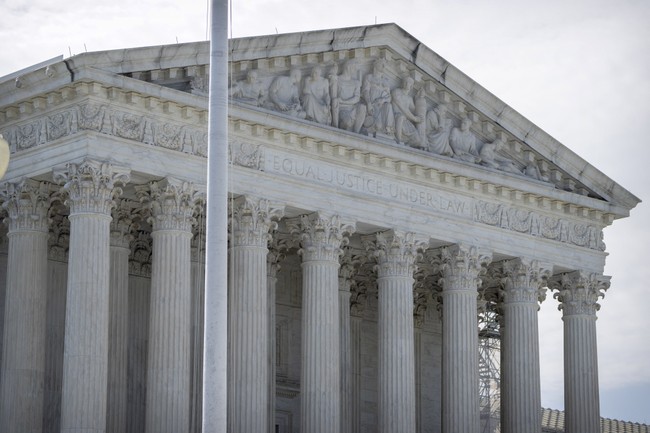Supreme Court and Trump's Deportation Dilemma
Tensions intensify as the Supreme Court issues a contentious order on Trump's deportation policies, affecting a Salvadoran national wrongly deported to El Salvador.
Published April 14, 2025 - 00:04am

Image recovered from redstate.com
The U.S. Supreme Court has become a focal point of a heated legal and political battle involving the Trump administration's immigration policies. The case revolves around Kilmar Armando Abrego Garcia, a Salvadoran national whose erroneous deportation has spurred judicial scrutiny and executive pushback.
Initially living in Maryland, Abrego Garcia, who holds a work permit, faced deportation due to alleged MS-13 affiliations, a claim he and his attorneys vehemently deny. His case took a pivotal turn when U.S. District Judge Paula Xinis demanded his return to the United States, declaring his deportation a legal misstep depriving him of due process.
The Supreme Court, in a nuanced ruling, sided partially with the district court's demand that the government facilitate his release from Salvadoran custody. However, it stopped short of mandating his full return, seeking further clarification on the term 'effectuate,' a directive requiring careful navigation of foreign affairs involved in such immigration cases.
Justice Sonia Sotomayor joined her liberal colleagues in critiquing the administration, emphasizing the human rights aspect and urging the government to prioritize rectifying its 'glaring error.' Her call for adherence to established legal frameworks on deportation protections contrasts sharply with the administration's firm stance on Abrego Garcia's alleged criminal ties, which it uses to justify its immigration enforcement agenda.
While liberal justices express discontent with how the deportation was handled, the administration continuously cites security and anti-terrorism grounds as pivotal to its tough immigration measures. The administration argues the deportation was procedurally flawed but insists on its overall legality within its broader strategy against illegal immigration and organized crime.
This complex legal affair underlines broader implications for U.S. immigration policy under Trump, known for its rigorous stance and frequent clashes with judicial opinions. The strategic deployment of immigration law by both sides underscores the multifaceted nature of this high-stakes legal battle, reflecting on political, human rights, and foreign policy domains.
The ruling encapsulates the challenges faced by the judicial system in balancing national security claims against individual rights protection, amidst the broader debate over immigration control and international human relations. The case pushes the executive, judicial, and legislative branches to redefine boundaries and examine the consonance between law enforcement goals and humanitarian commitments within American society.
As tensions over immigration policies persist, the U.S. judicial landscape remains a dynamic arena where governmental power, individual rights, and international diplomacy intersect, reflecting a society grappling with the complexities of migration control and the human stories entwined.





